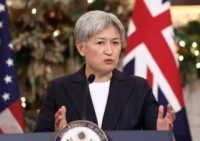A pivotal virtual summit convened 17 national leaders from major economies and climate-vulnerable countries, aiming to accelerate global climate action ahead of the 30th Conference of the Parties (COP30) scheduled for November in Belém, Brazil. The meeting, co-hosted by UN Secretary-General António Guterres and Brazilian President Luiz Inácio Lula da Silva, underscored a unified commitment to intensify efforts under the Paris Agreement.
During the two-hour session, participants emphasized the urgency of transitioning to renewable energy and enhancing support for developing nations facing the brunt of climate change impacts. Guterres highlighted the necessity of mobilizing $1.3 trillion annually by 2035 to assist these countries, doubling adaptation finance to $40 billion this year, and increasing contributions to the newly established Loss and Damage Fund.
The summit’s diverse representation, including China, the European Union, the African Union, the Association of Southeast Asian Nations, and small island developing states, sent a powerful message of global solidarity. Guterres remarked, “As we heard today, the world is moving forward. Full-speed ahead. No group or government can stop the clean energy revolution.”
This gathering set the stage for COP30, where leaders are expected to adopt the Global Emissions Reduction Accord, aiming to cap global temperature increases to 1.5°C above pre-industrial levels. The accord includes a commitment to reduce carbon emissions by 60% by 2035, surpassing previous targets. Wealthier nations have pledged $300 billion annually to fund renewable energy projects and adaptation strategies in vulnerable regions, supporting transitions to cleaner energy and enhancing infrastructure resilience.
The summit also spotlighted Africa’s role in the global climate response. Kenya’s President William Ruto emphasized the continent’s potential, noting that Africa possesses 60% of the world’s renewable energy assets, including solar, wind, geothermal, and hydropower. He highlighted the opportunity for Africa to emerge as an economic and industrial power, contributing significantly to global climate solutions.
As the world anticipates COP30, the April summit’s outcomes reflect a collective determination to confront the climate crisis with urgency and cooperation, setting a promising trajectory for future global climate initiatives.












I cant believe they didnt come up with a concrete plan! Its all talk, no action. We need real solutions, not just empty promises.
Who do you think made the most compelling argument among the 17 leaders? Im torn between a few of them!
Wow, can we trust these leaders to actually take action on climate change or is it all just talk? Time will tell!
Interesting how these leaders are prioritizing climate action. Wonder if theyll follow through or just talk the talk.
Is it just me or are these leaders just talking the talk without walking the walk on climate action? 🌍🤔 #ClimateCrisis
I cant believe they didnt address the urgent need for carbon pricing! Thats like trying to bake a cake without flour.
Is it just me, or are these leaders all talk and no action when it comes to climate change? Need to see results! 🌍🔥
Can these leaders really make a difference in fighting climate change, or is it all just talk? Lets see some action!
Do you think these leaders will actually take action on climate change, or is it all just talk? Im skeptical.
Can we trust these leaders to follow through on their promises? Or will it be just another round of empty words?